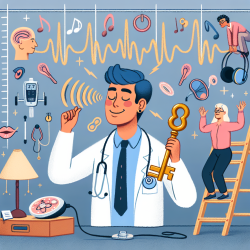Understanding Social Competence in Adolescent Females with ASD
Adolescent females with Autism Spectrum Disorder (ASD) face unique challenges in their social-emotional development. A recent study by Jamison and Schuttler (2015) provides valuable insights into the social competence, self-perception, quality of life, and internalizing and externalizing symptoms in adolescent females with and without ASD. This blog explores the findings of this research and discusses how practitioners can use these insights to improve outcomes for this vulnerable population.
Key Findings from the Study
The study utilized a quantitative design, employing correlational analysis and t-test comparisons, to examine social-emotional health indicators and problematic symptoms using the Social Skills Improvement System (SSIS), Youth Quality of Life Instrument (YQOL), and the Self-Perceptions Profile for Adolescents (SPPA). The results revealed significant differences between females with and without ASD in terms of self-ratings of social-emotional health and problematic behaviors.
- Adolescent females with ASD perceive themselves as having lower social competence, self-worth, and quality of life compared to their typically developing peers.
- They also report higher levels of internalizing (e.g., anxiety, depression) and externalizing symptoms (e.g., disruptive behaviors).
- Parent reports indicate that higher levels of autism symptoms correlate with lower levels of social competence.
Implications for Practitioners
These findings highlight the need for tailored interventions that address the unique social-emotional needs of adolescent females with ASD. Practitioners should consider the following strategies:
- Develop Targeted Social Skills Programs: Implement social skills training (SST) programs that focus on the specific challenges faced by females with ASD, including communication, empathy, and relationship-building skills.
- Enhance Self-Perception: Incorporate activities that boost self-esteem and self-worth, such as positive reinforcement and self-reflection exercises.
- Address Internalizing Symptoms: Provide support for managing anxiety and depression through cognitive-behavioral therapy (CBT) and mindfulness practices.
- Involve Parents: Engage parents in the intervention process to ensure consistency and reinforcement of skills at home.
Encouraging Further Research
While this study provides valuable insights, further research is needed to explore the nuances of social-emotional health in adolescent females with ASD. Future studies should consider larger sample sizes, longitudinal designs, and comparisons with male counterparts to gain a comprehensive understanding of gender differences in ASD.
To read the original research paper, please follow this link: Examining social competence, self-perception, quality of life, and internalizing and externalizing symptoms in adolescent females with and without autism spectrum disorder: a quantitative design including between-groups and correlational analyses.










